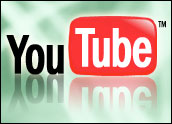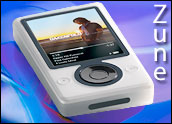
Nokia, the world’s top cell phone maker, says it will begin offering free maps and routing to its customers in more than 150 countries, as well as users of Window Mobile devices.
Nokia’s “smart2go” will allow users to focus localized search and route-finding services into mobile handsets for free.
Points of Interest
The new service uses navigation software the Finnish phone maker acquired last year from its buyout of Gate5, a German-based mapping and routing company.
The platform contains over 15 million “points of interest,” including sights, restaurants and accommodations around them. Customers can select locations and send them through multimedia message, Bluetooth wireless technology, infrared or e-mail, according to Nokia.
Users can also store the map data on a memory card in the handset and the data can be downloaded over the air or via a connection to a PC.
Phones based on Linux and older Nokia and Microsoft devices will be supported in the future, the firm stated Thursday.
Finding the Way
The device also sends map excerpts and routes or saves maps as screen shots. It is also capable of recognizing brand names, allowing companies such as McDonald’s the option to place branded icons across the world’s digital maps that are downloaded onto mobile devices.
“People will trust and use maps if they have those maps with them when they need them, and smart2go allows consumers the full freedom of which maps they want to carry with them,” Ralph Eric Kunz, vice president of multimedia for Nokia, said.
Nokia Maps and smart2go eliminate costs as a “barrier for anyone to enjoy the convenience of maps and routing on-the-go,” Kunz continued.
“Nokia is on track to build the world’s most connected location based platform for mobile devices which also opens up interesting opportunities for future services,” he added.
An Alternative Device
Although Nokia is trying to compete straight up with the personal navigation device market, it also hopes to gain an edge by offering a different pricing model, Rob Enderle, principal analyst with the Enderle Group, told TechNewsWorld.
While standalone navigation device makers, such as the popular TomTom, typically charge users for the hardware and the maps up front, Nokia is giving the maps away and charging for the navigation services as users need it.
“It is going to present a challenge to these standalone companies,” Enderle predicted, noting the ubiquitous nature of handheld devices made them ideal for receiving navigational needs. “It’s a natural fit.”
Nokia’s push into the space is another step in turning the cell phone into a “super device” becoming the center of so many different types of transactions, Enderle claimed.
Different Type of Competition
TomTom doesn’t face an immediate threat, according to Enderle, because Nokia appears to be going for a low-end service, but it will eventually need to beef up services in order to fend of the charge from handsets.
Prices vary based on the user’s location, but as an example, a one-week subscription for navigation services in Germany costs approximately US$7, one month is $10 and one year is $70.





















































